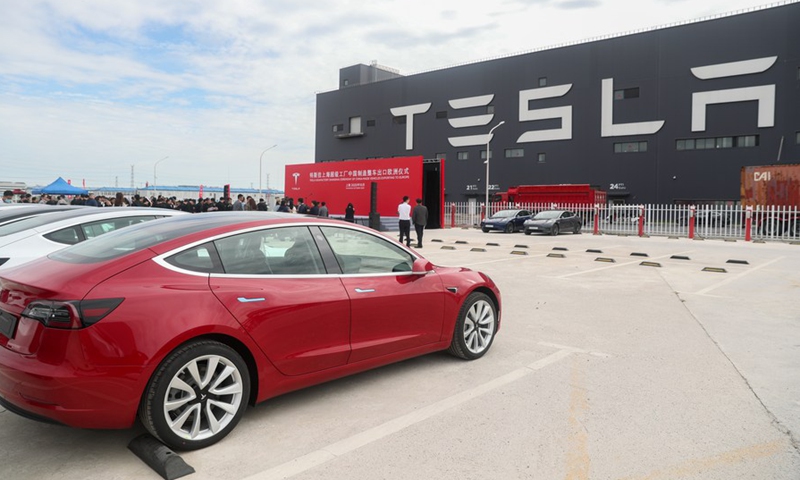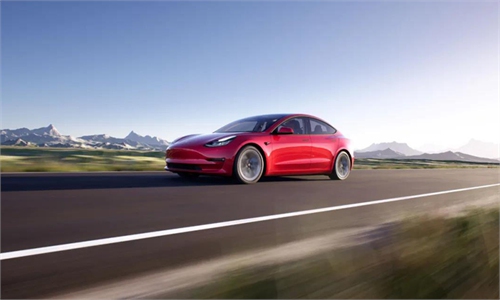
Tesla Photo:Xinhua
US electric vehicle maker Tesla will recall a total of 285,520 China-made or imported Model 3 and Model Y vehicles starting from Saturday due to issues with their cruise control system, China's market regulator said on Saturday.
Although the recall added to a series of the company's missteps in the world's largest car market, experts said that it is unlikely to undermine the carmaker's sales in China, considering Tesla's brand appeal to Chinese consumers. They also noted that the government support to overseas car firms like Tesla will likely continue.
The recall plan includes 246,921 Model 3 cars produced from January 2019 to June 7, 2021 and 38,599 Model Y cars produced in 2021, according to a statement published on the site of State Administration for Market Regulation.
The cruise control problem can cause the driver to activate the active cruise function by mistake in a series of scenarios including a sudden increase of speed that goes beyond the driver's expectation. In extreme cases, it can lead to a car crash, said the statement.
Wu Shuocheng, an independent auto analyst, said that cruise control problem opens the possibilities of leading to serious accidents, as a driver who is not very familiar with the function panics when a car suddenly automatically increases speed. But he noted that it's hard to determine exactly the severity of the potential consequences.
In response to the recall plan, Tesla China on Saturday apologized for the inconvenience caused to impacted consumers, saying customers can complete the recall procedure online via OTA updates. For users who can't finish the process through remote updates, Tesla will contact them to upgrade the cruise control system of their cars.
Tesla also vows it will constantly improve safety conditions of its products in accordance with national requirements.
In early June, Tesla has recalled more than 700 imported Model 3 electric vehicles sold in China over seat belt issues, loose bolts and other quality problems.
The US automaker, which is in hot water in China over a recent spate of its cars involved in accidents and a public relations crisis, was called to respond to the surging complaints and concerns over quality issues from consumers. Last month, Tesla posted on its Chinese social media SinaWeibo account six apology statements, trying to win Chinese consumers' confidence back and restore its brand image.
However, the quality issues seem not to greatly dent the carmaker's sales in China, some analysts claim. In May, Tesla's sales rebounded back to over 30,000 after its sales fell by nearly 10,000 cars to 25,845 in April, official data showed.
According to Wu, judging from previous cases in which overseas car brands are exposed quality problems, domestic customers are unlikely to entirely give up a car brand as long as its competence and brand influence are attractive to the consumers. And in the case of Tesla, its quality problems are "within the limits of toleration" in the eyes of many consumers, he said.
He noted that Tesla has voluntarily asked to recall the cars, which might be seen as a "responsible move" by consumers.
"I think the key to whether a foreign brand can succeed in the Chinese market lies in whether it respects the consumers and whether it brings good products to the market. In those aspects, Tesla has won recognition from domestic consumers," Wu told the Global Times.
He also noted that the Chinese government is likely to continue to support overseas companies including Tesla to invest in China, as a way to support the country's car part supply chains and develop industrial talent. However, the government will not give special care to those companies or show any attitude that may implicate a preference, he noted.


